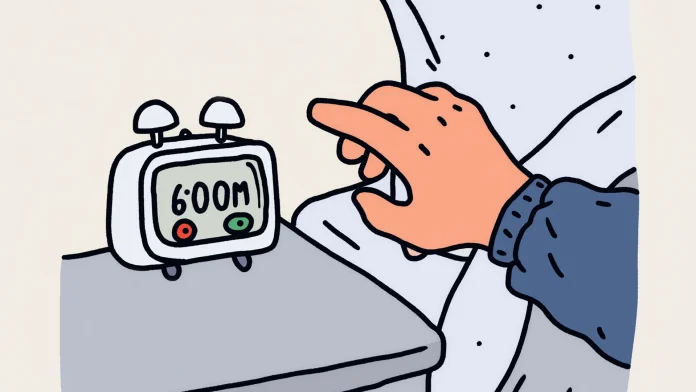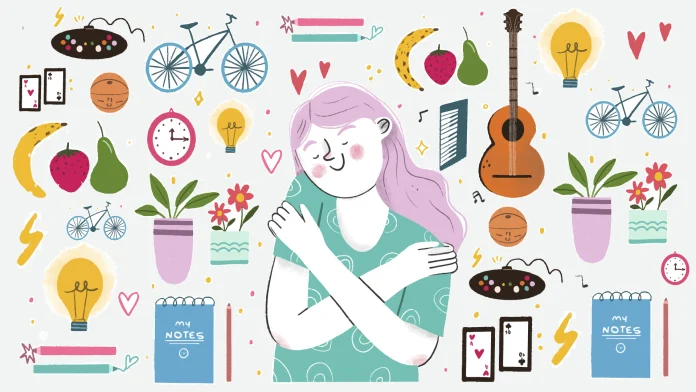Written by Natalia Laspina
Medically reviewed by Susana Pontiggia (Psychologist, Specialist in Neuroscience and Human Behavioral Sciences, Consultant in Personal and Organizational Development)
Art by Valentina Taraborelli
Why Brain Training Matters
Cognitive stimulation becomes particularly relevant when signs of mental decline appear. However, maintaining brain exercise throughout life is essential to preserving cognitive abilities, much like staying physically active helps maintain overall health.
The brain is a complex organ responsible for memory, reasoning, problem-solving, and emotional processing. Over time, factors such as aging, stress, and lack of mental engagement can lead to cognitive decline. However, research shows that keeping the brain active through challenges and new learning experiences can slow this process and even improve brain function.
The concept of neuroplasticity—the brain’s ability to reorganize itself by forming new neural connections—proves that cognitive training can be beneficial at any stage of life. This means that no matter how old you are, your brain can continue learning and adapting when given the right stimulation.
Many neurological conditions, including Alzheimer’s and other forms of dementia, affect cognitive function over time. While there is no cure for these diseases, engaging in brain-training activities can help maintain mental agility and improve the quality of life.
The Brain: A Muscle That Needs Exercise
You’ve probably heard that doing crossword puzzles is good for the brain. While this is true, crosswords primarily strengthen language-related skills. The key to maintaining a sharp mind is engaging in diverse activities that stimulate multiple cognitive functions, such as attention, memory, reasoning, and comprehension.
“The brain has the ability to regenerate and keep learning until the very end. We can all become more creative if we use the right techniques and methods to stimulate our neurons,” explains Dr. Michael Merzenich, founder of brainHQ, an online program with dozens of brain-training exercises. As a leading neuroscientist who discovered adult neuroplasticity, he emphasizes that we should think of the brain as a muscle—it requires consistent training to stay strong.
Let’s Play!
Games have been a part of human civilization for thousands of years. In fact, the oldest known dice were found in the ruins of ancient Mesopotamia (modern-day Iraq) and date back to 3000 B.C. This suggests that people have long understood the value of play—not only for entertainment but also for mental and social development.
Playing is not just for children. It is an essential activity at every stage of life, helping to keep the mind active and engaged. This is particularly important for people who are beginning to experience cognitive decline. Platforms like NeuronUP offer tailored cognitive training programs for professionals and families looking to support individuals with Alzheimer’s disease or other neurological conditions.
However, cognitive games aren’t just for those experiencing mental decline. People of all ages can improve and enhance their cognitive abilities through regular brain training. Playing alone or in groups not only strengthens existing mental skills but also reinforces social bonds, reduces stress, and even boosts mood.
Cognitive Games: Improve Your Mental Skills in a Fun and Effective Way
The brain processes numbers, words, and images in different ways. That’s why neuroscientists have designed a variety of games to stimulate mental functions that often weaken over time. Here are some engaging activities to help keep your brain sharp:
1. Bingo: A Fun Way to Boost Attention
Bingo isn’t just a game of luck—it activates multiple aspects of attention, including sustained, selective, visual, and auditory attention. Listening to a sequence of numbers and searching for them on a bingo card forces the brain to stay alert and react quickly. This game is an entertaining way to strengthen mental focus, especially when played with family or friends. Adding surprise prizes can make it even more exciting!
Click here to play!
2. Spot the Differences: Train Your Perception
This simple yet challenging game requires players to compare two nearly identical images and find subtle differences. The activity engages the visual processing areas of the brain, enhancing pattern recognition and attention to detail. These skills are essential for everyday tasks such as reading, driving, and problem-solving.
Click here to play!
3. Matching Images: Strengthening Memory and Recognition
This cognitive exercise is especially beneficial for people with Alzheimer’s disease or other memory-related conditions. It involves matching objects with their corresponding locations or professionals associated with them (e.g., a stethoscope with a doctor, a fire truck with a firefighter). This game helps train semantic memory, spatial orientation, and recognition skills, all of which are crucial for navigating daily life.
Click here to play!
Final Thoughts
Keeping your brain active through games and cognitive exercises is one of the simplest and most effective ways to enhance mental agility, improve memory, and delay cognitive decline. Whether you’re looking to sharpen your focus, reduce stress, or simply have fun, brain-training activities can benefit everyone.
So why not make brain exercise part of your daily routine? Whether it’s solving puzzles, playing board games, or engaging in digital cognitive training programs, the key is variety and consistency. Your brain, just like your body, thrives when challenged.
Let the games begin!








